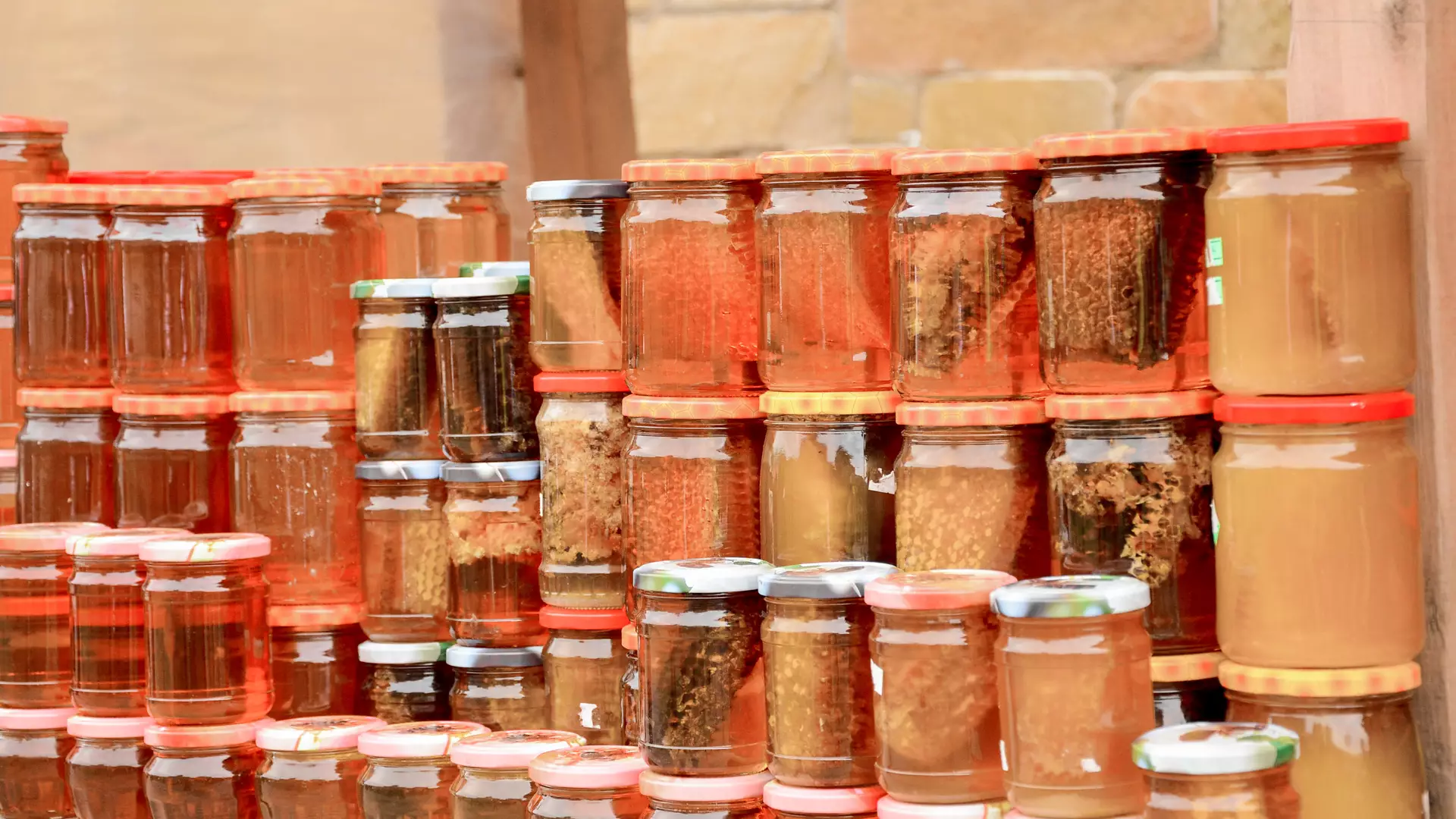Georgian Honey
The History of Georgian Honey
It is possible that Georgia, in addition to wine, may soon be recognized as the homeland of honey as well. Archaeologists recently discovered a vessel for preserving honey near Borjomi dating back over 5,000 years, making it two millennia older than the honey found in Tutankhamun’s tomb in Egypt.
The Khobistskali River Valley in Georgia’s western region of Samegrelo is home a species of Georgian bee, the Mukhuri, recognized by the world community in the last century as the most productive type of bee with the longest proboscis.
Georgia’s Diverse Honey
Georgia is richly diverse in flora and so its honey follows suit: there is honey from acacia and citrus, which is as clear as tears, from linden and meadow flowers, which is the color of amber, from chestnuts, which is dark and gives off a specific flavor. All kinds have their own beneficial properties.
Jara honey from the coastal region of Ajara has already been granted the status of a Monument of Intangible Cultural Heritage. A “jara” is a traditional Georgian beehive made of a whole tree trunk. Jara honey is a unique, high-quality, organic product, and today similar types of beekeeping are practiced only in a few places in the world. Meanwhile, Machakhela Gorge honey is famous for being ecologically pure and extremely delicious.
Among Georgian honeys, those from Racha, Tsalka, and Bediani stand out, rendered especially tasty thanks to the clean rivers and relatively unpolluted air in which they are produced.
Three types of beekeeping are well-developed in Georgia: wild, semi-wild, and domestic. In every region of the country, you will still find honey being used both as food and for distilling spirit, as a form of medicine, and in cosmetics.
Cookie Policy

